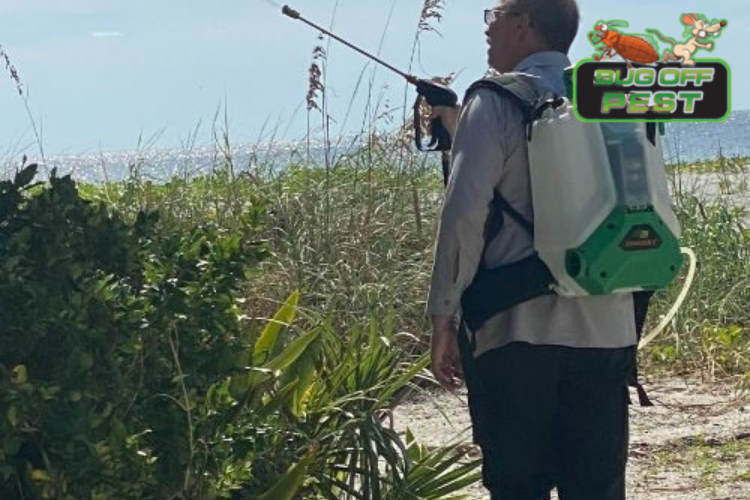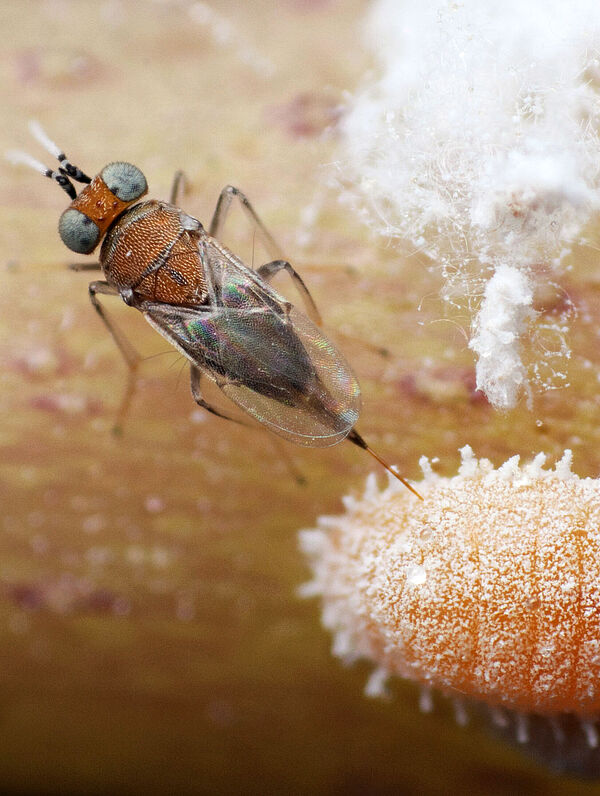Effective Termite Treatment Port Charlotte to Protect Your House
Effective Termite Treatment Port Charlotte to Protect Your House
Blog Article
Find Out About the Most Current Developments in Insect Control and How to Apply Effective Therapy Solutions
Over the last few years, the area of parasite control has witnessed considerable improvements, driven by the demand for reliable and lasting therapy options. Innovative techniques such as Integrated Bug Management (IPM) combine eco-friendly techniques with sophisticated innovation, boosting both effectiveness and environmental responsibility. In addition, the combination of wise innovations and do it yourself techniques has equipped individuals to tackle insect problems better. As we check out these advancements, it ends up being necessary to comprehend just how best to carry out these techniques in numerous settings to accomplish optimal outcomes. The ramifications for bug administration practices could be transformative.
Eco-Friendly Insect Control Options
Recently, the demand for eco-friendly insect control choices has surged as businesses and home owners alike look for sustainable choices to traditional chemical therapies. This change is driven by expanding ecological recognition and a wish to reduce the health and wellness threats related to artificial pesticides.

Environment-friendly parasite control techniques encompass a series of methods that prioritize using all-natural materials and methods. Integrated Insect Management (IPM) is one such approach, integrating organic, cultural, and mechanical methods to handle bug populaces while minimizing reliance on chemicals (Wildlife removal services). This all natural method emphasizes prevention via habitat control and the intro of all-natural predators, therefore promoting a balanced environment
An additional prominent choice is the use of organic pesticides derived from plants, which have a tendency to be less harmful to non-target microorganisms. Products like neem oil and diatomaceous earth have acquired grip for their performance in controlling parasites while positioning marginal dangers to human health and wellness and the atmosphere.
In addition, exclusion methods, such as securing entry factors and keeping sanitation, play an essential function in environment-friendly parasite administration. By embracing these lasting methods, businesses and people can efficiently take care of insects while promoting a healthier earth for future generations.
Smart Innovation in Insect Management
Development is improving the landscape of parasite management, with wise innovation emerging as an essential force in enhancing performance and performance - Wildlife removal services. The integration of Internet of Things (IoT) gadgets, expert system (AI), and information analytics is changing how bug control professionals come close to infestations
Smart catches furnished with sensing units can detect insect activity in real-time, sending out immediate alerts to operators. This permits timely reactions, minimizing damages and reducing the requirement for considerable therapies. Furthermore, AI formulas examine historical information to forecast parasite habits, enabling proactive treatments based on ecological conditions and problem patterns.
Drones and automatic cars are likewise playing a considerable function in insect administration, supplying aerial assessments of big locations, recognizing hotspots, and also distributing targeted treatments. These technologies not just improve operations however likewise enhance safety by restricting human direct exposure to possibly damaging chemicals.
Moreover, mobile applications encourage consumers to monitor parasite activity and gain access to specialist recommendations, promoting a collective method to pest administration. Generally, the fostering of wise technology is setting a brand-new requirement in bug control, stressing data-driven decisions and sustainable practices that inevitably profit both property owners and professionals alike.
Integrated Parasite Administration Approaches
Integrated Parasite Monitoring (IPM) uses an all natural technique to pest control, integrating different techniques to efficiently manage bug populaces while decreasing risks to human health and wellness and the atmosphere. IPM focuses on understanding the pest life process, their natural opponents, and the ecological community in which they thrive.
Among the fundamental components of IPM is keeping track of pest populations with routine evaluations and data collection. This permits for the identification of pest thresholds, establishing when treatment is necessary. Cultural practices, such as crop habitat, rotation, and hygiene manipulation, are vital in minimizing bug frequency and advertising plant health and wellness.
Mechanical controls, including catches and barriers, are additionally crucial in IPM. These techniques can literally eliminate or hinder pests without using chemicals. When needed, the sensible application of chemical controls is employed, concentrating on targeted therapies that reduce environmental effect.
Education and learning and partnership among stakeholders, consisting of farmers, pest control experts, and the area, are critical for the effective implementation of IPM strategies. By prioritizing sustainable practices, IPM not only addresses pest concerns but likewise fosters a much healthier environment.
Biological Control Methods
Numerous organic control methods are progressively identified for their effectiveness in taking care of parasite populaces while advertising environmental equilibrium. These approaches harness all-natural killers, parasites, and virus to minimize pest numbers without depending on artificial chemicals. For example, the introduction of ladybugs can successfully control aphid populaces, while nematodes target soil-dwelling pest larvae.
Additionally, the usage of microbial pesticides, such as Bacillus thuringiensis (Bt), gives an ecologically friendly choice for managing caterpillar insects. These items especially target pest species, lessening injury to advantageous bugs and pollinators. Additionally, preservation organic control stresses enhancing environments for natural opponents, such as birds and useful bugs, thus urging their visibility in agricultural systems.
Research study continues to rodent control spray expose innovative methods within this area, such as making use of scents to interfere with pest breeding patterns or the growth of biocontrol representatives with genetic modification. Implementing these approaches can lead to sustainable pest administration practices that minimize the dependence on chemical interventions, inevitably cultivating healthier environments. As recognition of these methods grows, they are coming to be essential elements of incorporated insect administration (IPM) methods, providing a balance between effective parasite control and ecological stewardship.
Do It Yourself Parasite Control Solutions
As property owners seek reliable means to take on parasite concerns, do it yourself parasite control options have gotten popularity for their ease of access and cost-effectiveness. These techniques equip individuals to attend to invasions making use of readily available products and methods, often without the demand for professional treatment.

Additionally, preserving correct sanitation and routine examinations can avoid parasite entrance and nesting (Wildlife removal services). Simple practices, such as sealing fractures, removing food resources, and decluttering, can substantially reduce pest populaces. Traps, both homemade and readily readily available, can likewise use efficient remedies for monitoring and regulating specific pests like bugs or rats

Verdict
The integration of environment-friendly parasite control choices, clever innovation, and ingenious management methods provides a thorough approach to effective parasite management. By accepting Integrated Pest Management (IPM) and using biological control methods, alongside DIY solutions, lasting and accountable insect control can be attained. These innovations not only improve the performance of insect monitoring practices but also add to a Get More Info much healthier environment. Applying these approaches cultivates a well balanced ecological community while successfully dealing with pest populations.
Eco-friendly parasite control techniques encompass a variety of approaches that focus on the use of all-natural materials and methods. Integrated Parasite Administration (IPM) is one such method, integrating organic, cultural, and mechanical methods to handle parasite populaces while decreasing dependence on chemicals. As awareness of these techniques expands, they are ending up being essential components of integrated insect management (IPM) methods, supplying an equilibrium in between efficient bug control and ecological stewardship.
The combination of eco-friendly pest control alternatives, wise innovation, and cutting-edge monitoring strategies provides a thorough method to effective insect administration. By accepting Integrated Parasite Administration (IPM) and utilizing organic control methods, together with Do it yourself services, liable and sustainable parasite control can be achieved.
Report this page